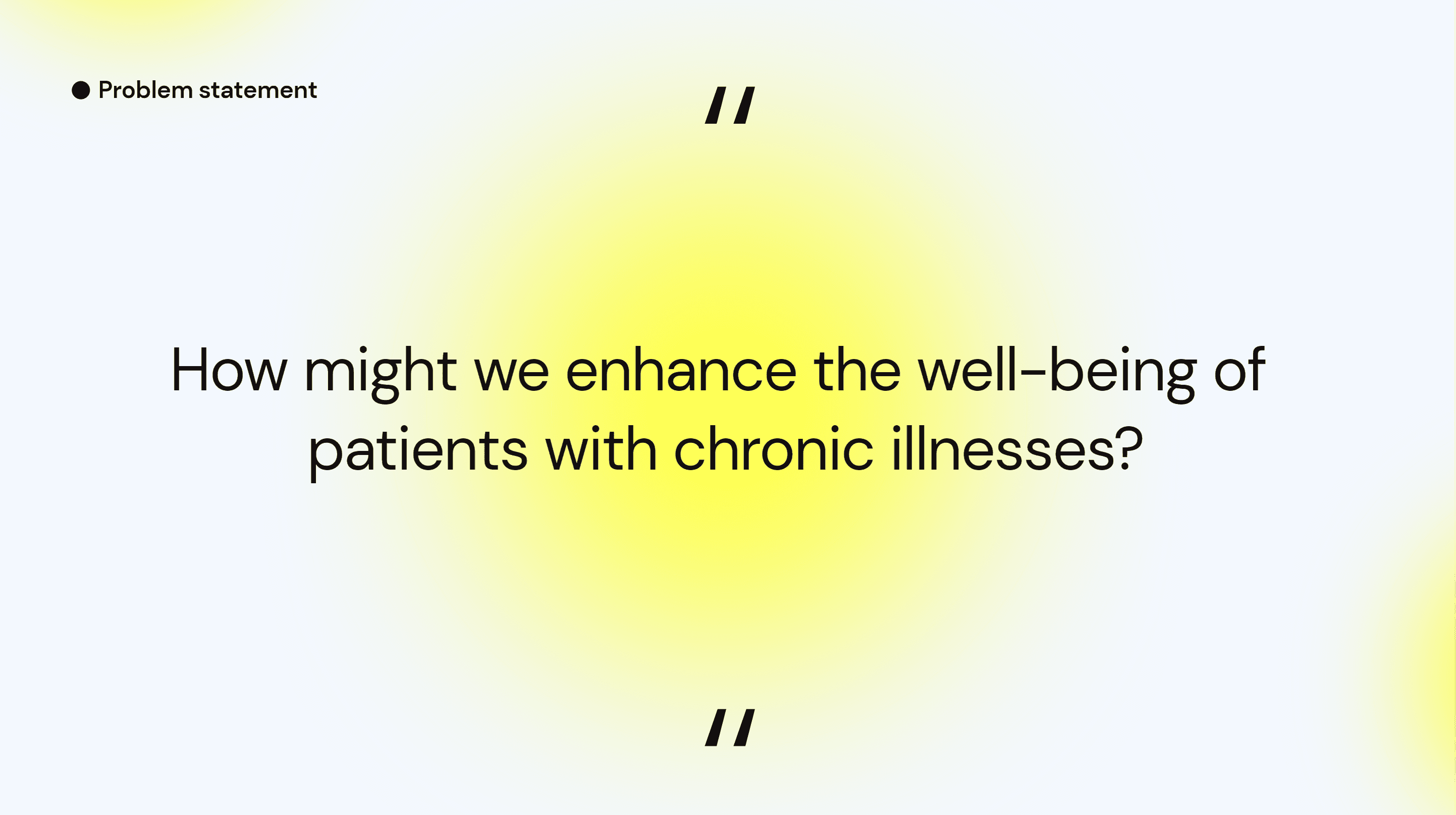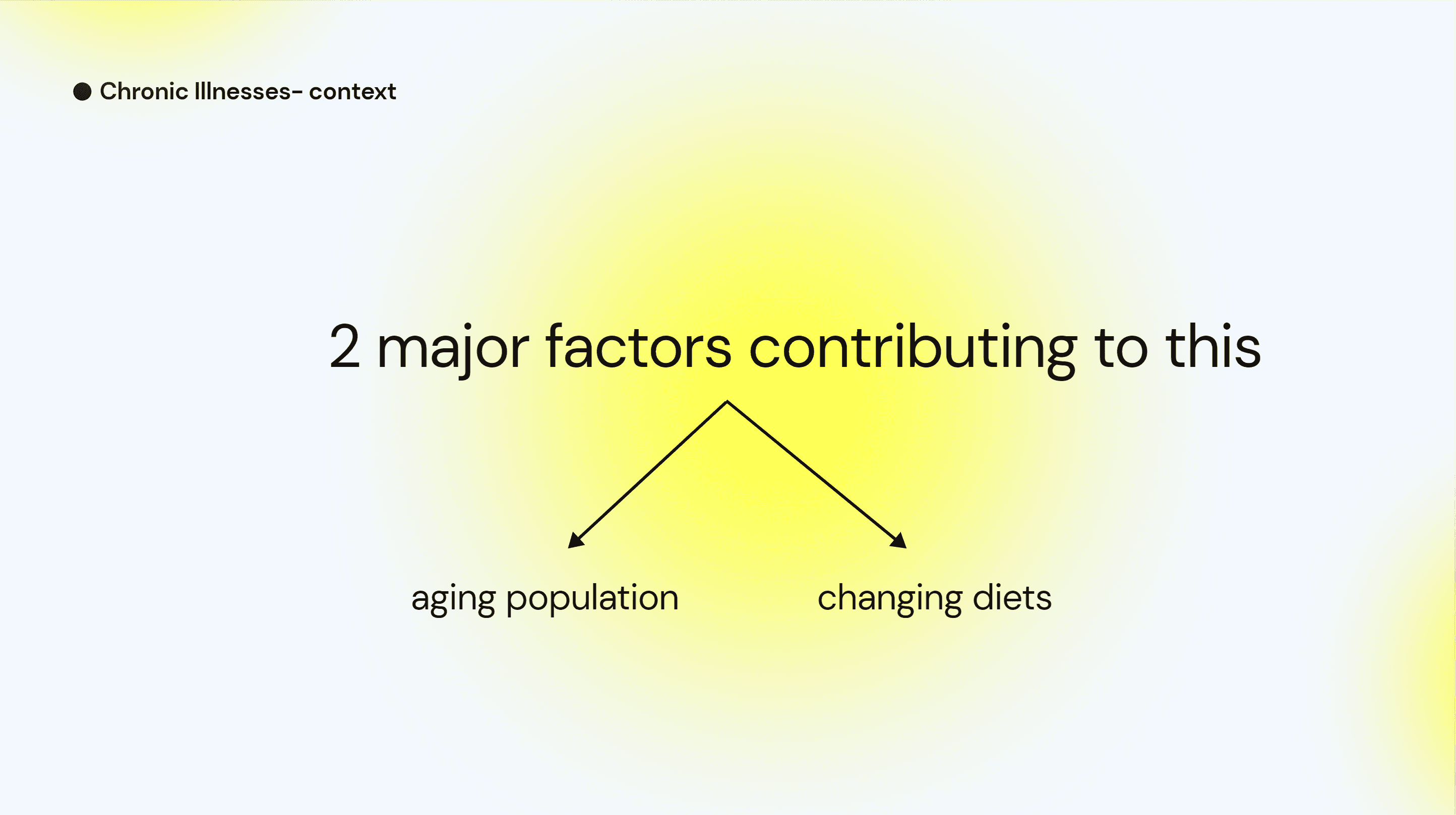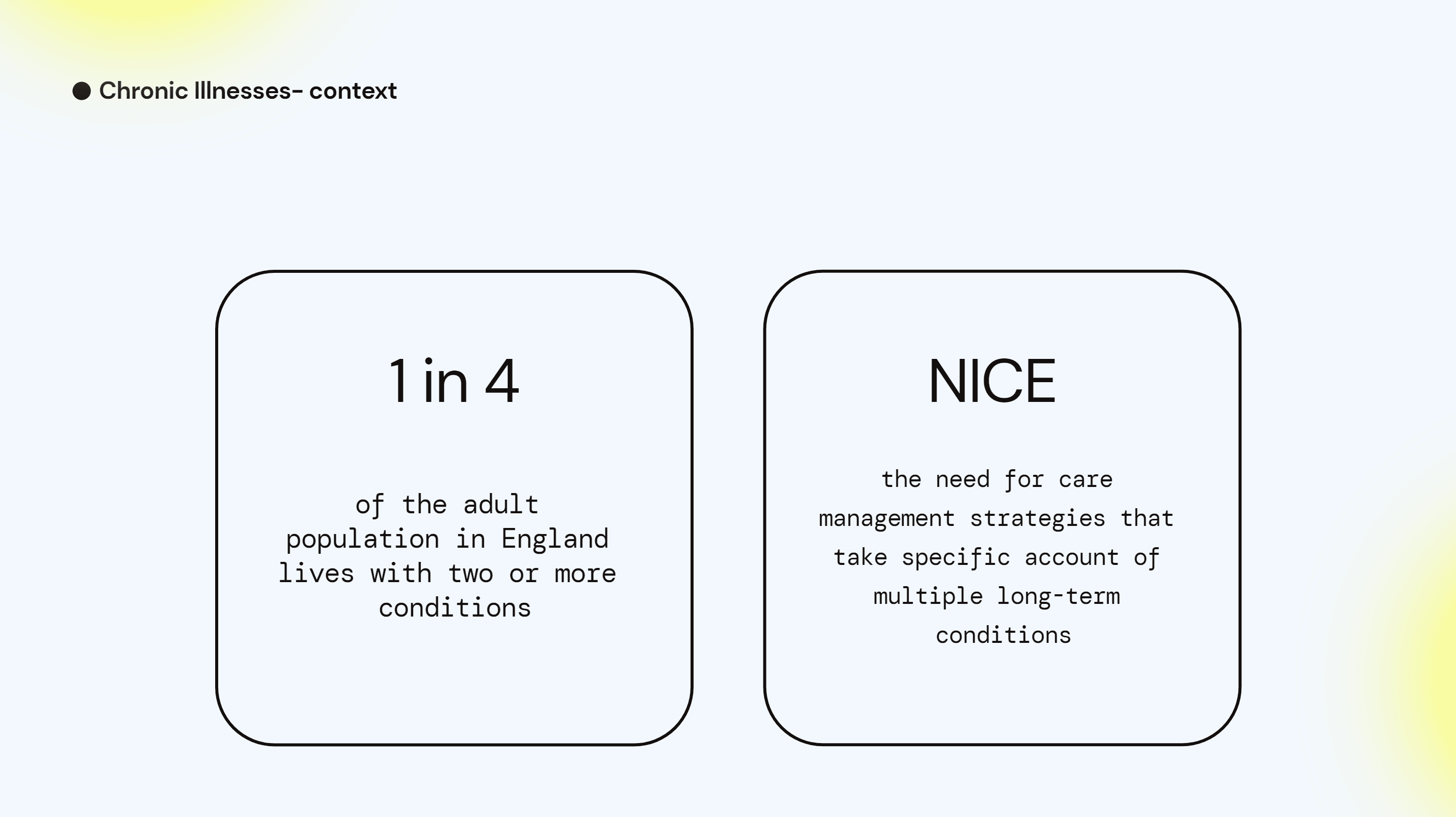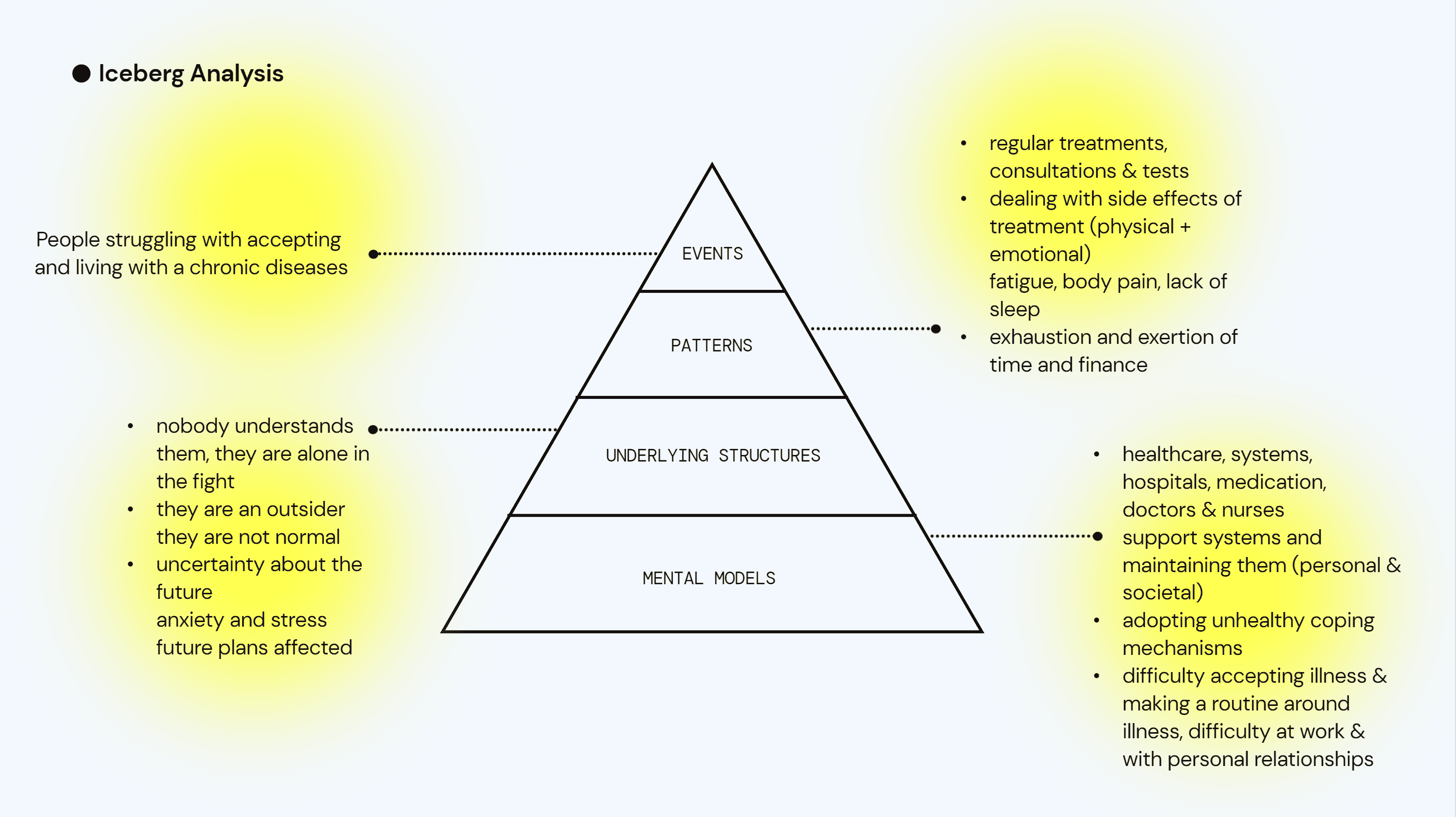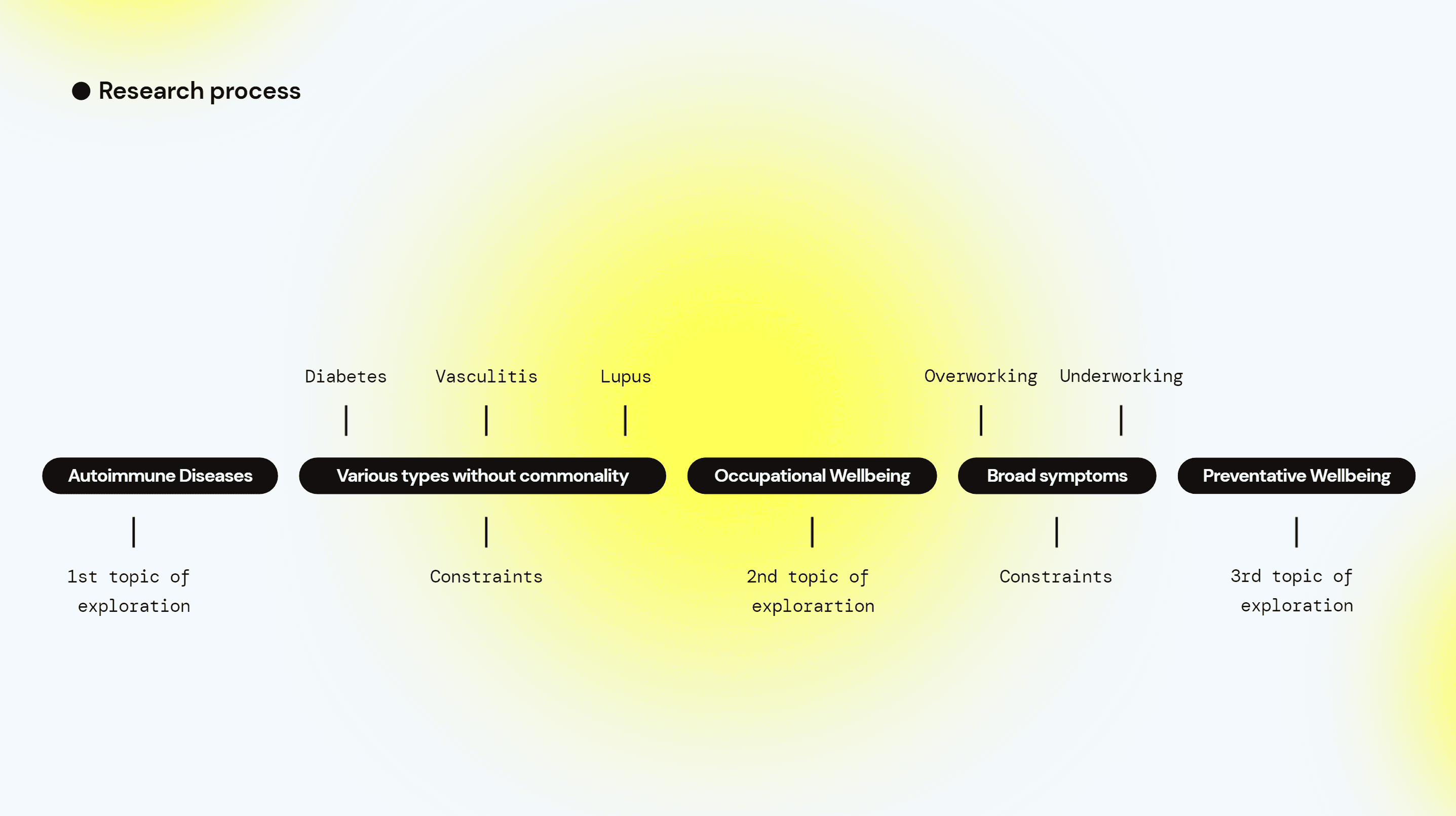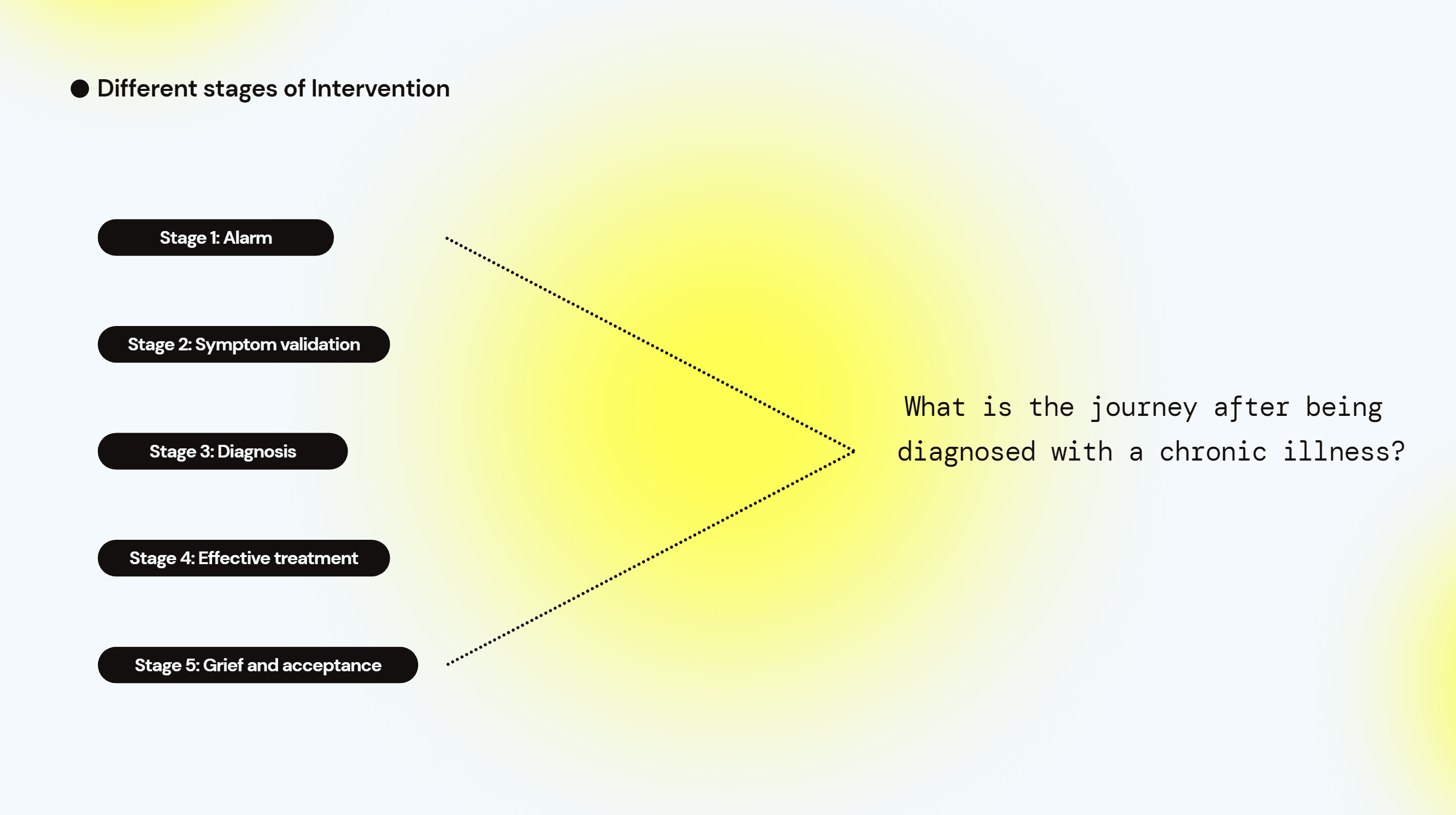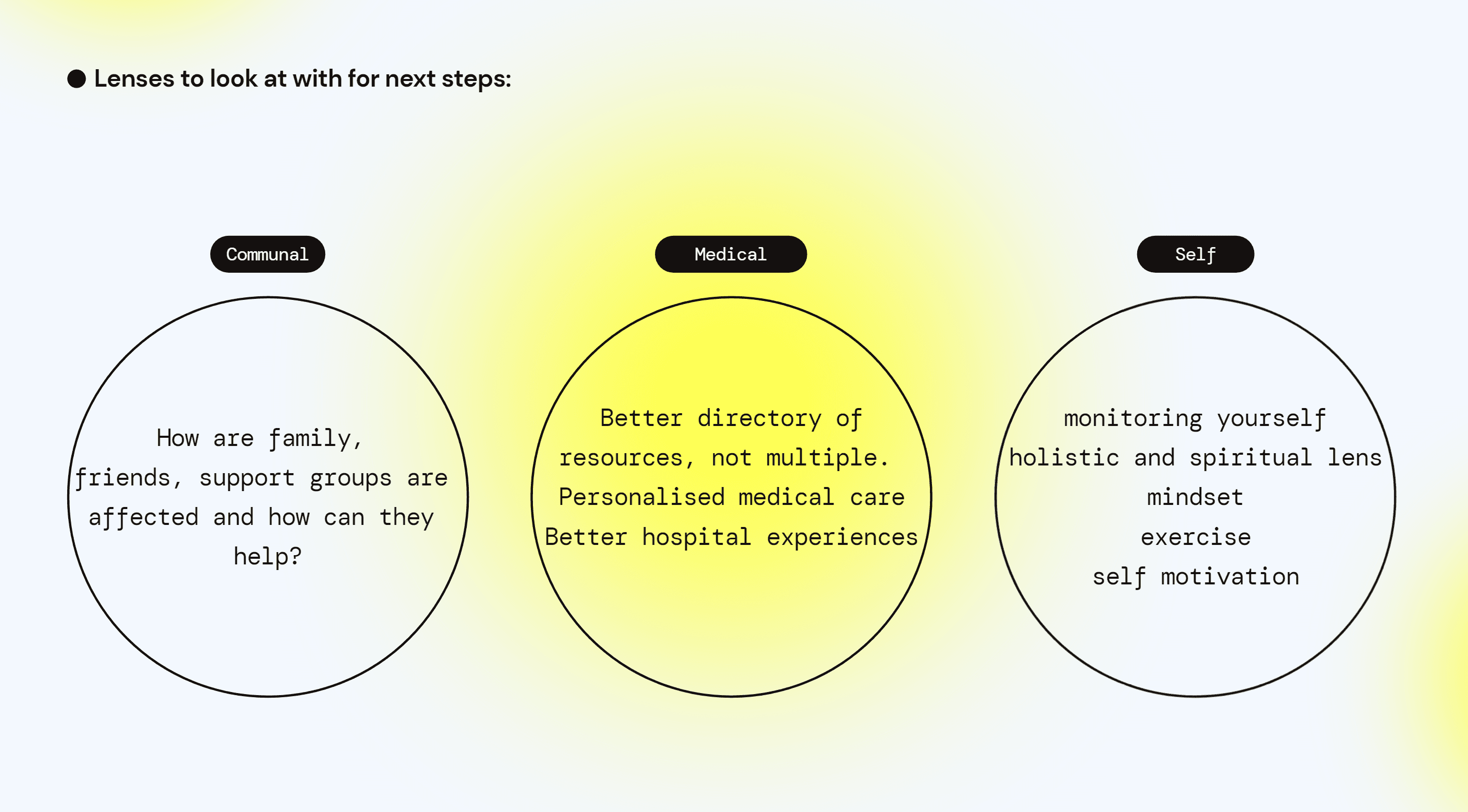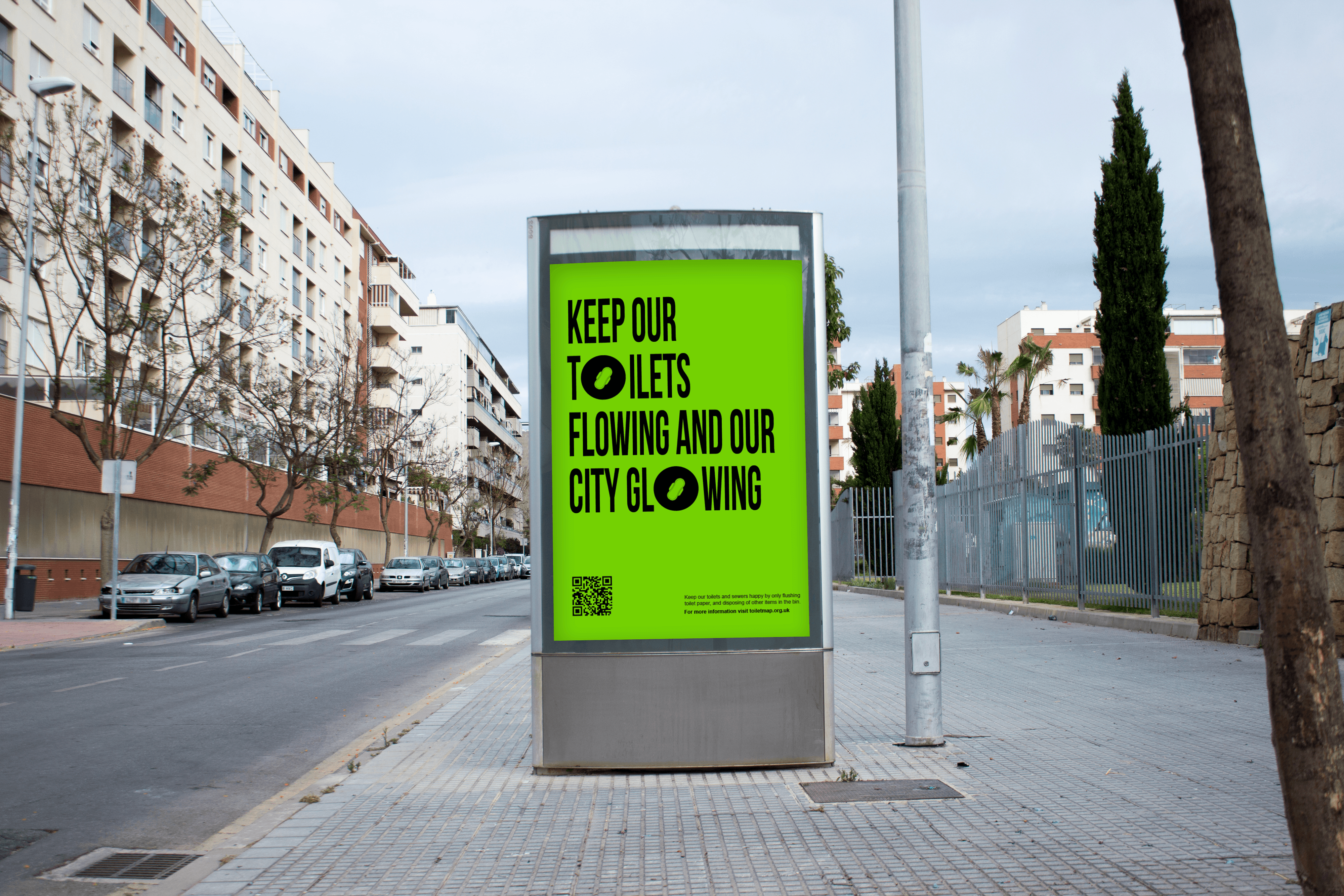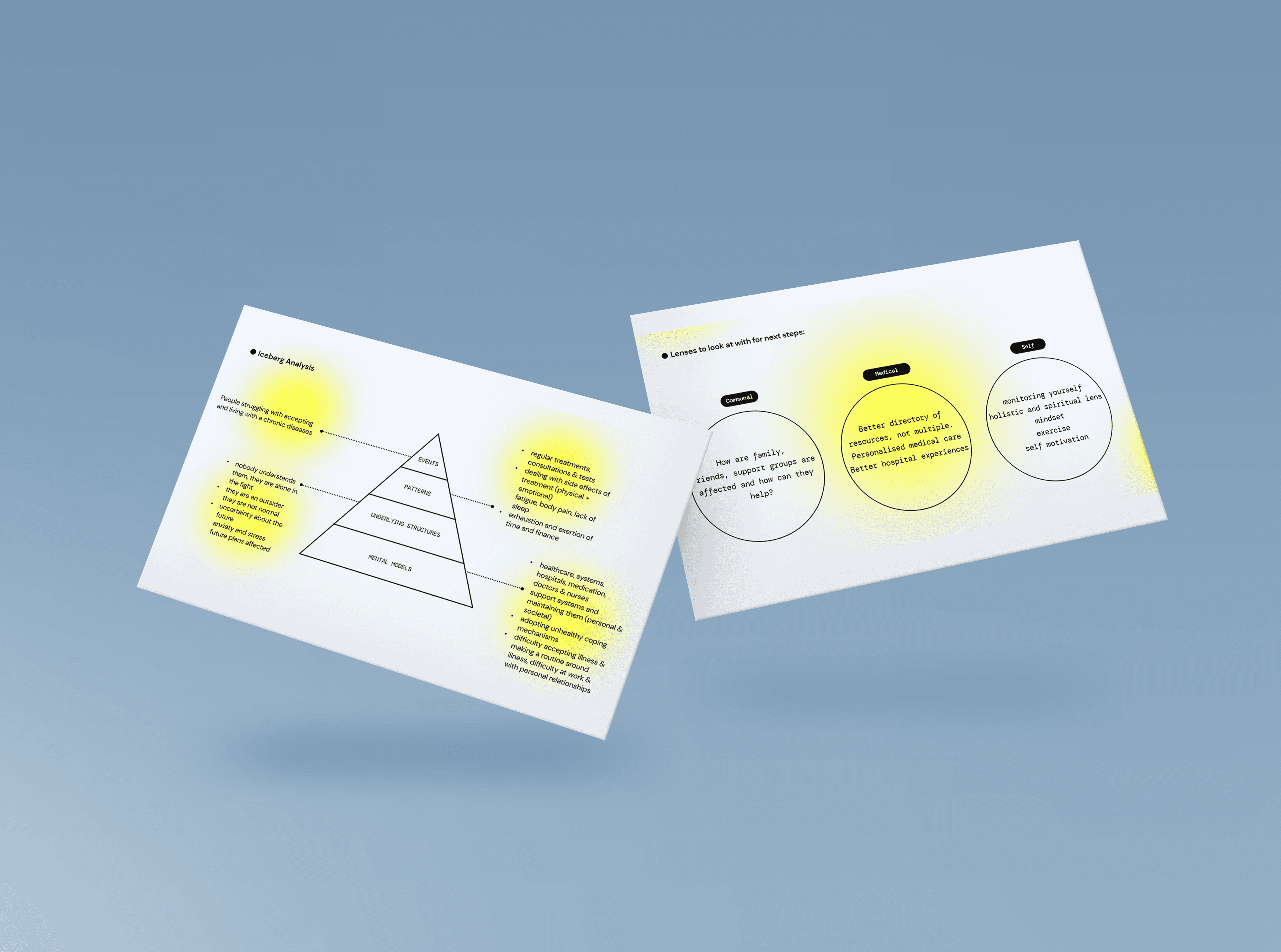
Goal
How might we enhance the well-being of patients with chronic illnesses?
Themes
Social Impact
Service Design
Client Project
My Role
UX Designer
Prototyper
Communicator/Storyteller.
Methods & Tools
User-Centric Design
Design Sprints
Accessibility
Visual Hierarchy
Prototyping
Time Frame
7 days
This project focuses on improving the wellbeing of patients with chronic illnesses by reducing negative emotions generated by the side effects of medicines. It is designed with a people-centric, experience-based, society-oriented, circular, and sustainable approach that leverages technology. The aim is to enhance the experience of patients with chronic illnesses.
We were a team of 6 designers from the Royal College of Art participating in the Philips Service Design Challenge 2023.
The main problem is that patients with chronic illnesses experience negative emotions and side effects from their medicines, which negatively impacts their overall wellbeing and quality of life. This leads to decreased adherence to treatment, lower satisfaction with care, and a general decrease in health outcomes.
Iceberg Analysis was used as part of the research process. It’s a tool that helps to uncover the root cause of a problem by exploring what is visible on the surface and what lies beneath it. In this case, the visible problem was the negative emotions and side effects generated by the medicines used to treat chronic illnesses. It helped to uncover the underlying causes of the negative emotions and side effects experienced by patients with chronic illnesses. This allowed us to gain a deeper understanding of the patient's experience and to better design a solution that addresses the root cause of the problem. The Iceberg Analysis also helped to ensure that the solution was designed with the patient at the center, taking into account their emotional and psychological needs as well as their physical needs.
To address this issue, a service design approach is taken that places the patient at the center of the design process. The design is experience-based, meaning that the focus is on the patient's journey and the emotions they experience.
The approach is also society-oriented, ensuring that the solution is designed with the patient's community and wider societal implications in mind. Technology is leveraged to support the design, with the aim of creating a circular and sustainable solution. The ultimate goal is to improve the experience of patients with chronic illnesses and reduce the negative emotions generated by the side effects of their medicines.
